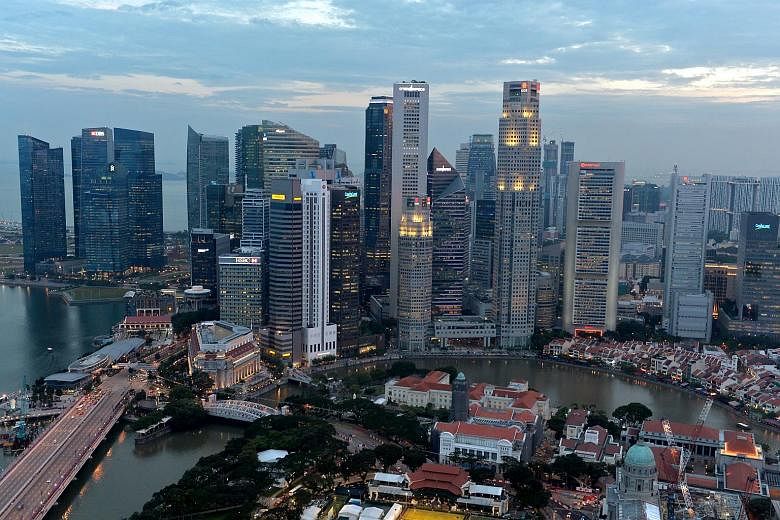Singapore is often placed on a par with Hong Kong, and we can therefore see news reports comparing almost every aspect of the two cities.
I believe the main reason is not only the differences, but also the similarities between the two places.
I recently had an opportunity to chat with a member of the Singaporean consulate-general in Hong Kong. This discussion naturally focused on endless comparisons between the two places.
Both Hong Kong and Singapore were once colonies of the United Kingdom; both economies started to rise rapidly in the 1970s to 1980s; both are dynamic cities with sizeable populations. For quite a long time, Hong Kong's economic aggregates were actually more impressive than Singapore's. This situation only changed about six years ago.
Singapore is a small seashore country on an area even smaller than Hong Kong.
Its neighbours are Malaysia to the north and Indonesia to the south. According to Lee Kuan Yew, the founding prime minister of Singapore who died last year, Singapore developed with hardly any natural resources or international "backers".
Lee said Singaporeans actually envied the geographical location of Hong Kong - which is adjacent to the Chinese mainland. He once said he would like to swap with Hong Kong!
Lee made a good point.
Take water resources for example: Hong Kong once suffered from a severe water supply shortage when freshwater was supplied only once every four days.
It was not until the central government helped bring about the supply of Dongjiang water to Hong Kong that the city stopped worrying about a shortage of freshwater.
But Singaporeans did not have such luck.
The Lion City has had to depend on its neighbour Malaysia to provide it with freshwater.
Relations between Singapore and Malaysia have sometimes been tense.
So there were frequent fears that any conflicts between the two sides would lead to the termination of the water supply.
As Lee noted when Singapore was first developing into a modern economy, every other policy was ultimately dependent on Singapore getting a supply of freshwater.
Lee, therefore, insisted on signing a water-supply contract with Malaysia, claiming he would even go to war over the issue of water.
The preciousness of water for Singaporeans was so stark that in the 1970s the Lion City started to develop ways to have its own water.
After years of hard work, seawater desalinisation in Singapore has reached world-class standards.
The technology, apart from meeting a quarter of the domestic demand for freshwater, has also been sold to other parts of the world - particularly the Middle East. Besides, more than 10 percent of the freshwater comes from the Marina Barrage - which used to be a reservoir in the ocean. It is now ready for aquatic sports.
The Singaporean government is confident that later this year when the contract with Malaysia is due to expire, the country will be 100 per cent self-sufficient in water.
It will even have enough resources to export it overseas.
The Lion City still has to spend tens of billions on national defence, which takes up almost 20 per cent of the government's expenditure.
In Hong Kong, thanks to the central government's support, we don't have to spend anything on this.
One would think that Hong Kong surpasses Singapore in most areas, but in fact multiple economic indexes in Singapore are better than those of Hong Kong - the GDP per capita since 2003, the GDP since 2010, and so on. Why?
I believe the main reason is the great efficiency of the Singaporean government.
Its authorities are constantly alert to potential risks and danger, and its people tend to look at the big picture, so it's easier for them to focus on economic development.
As for Hong Kong, politicisation has paralysed the Legislative Council and led to a waste of resources.
If this situation continues, the gap between Hong Kong and Singapore will only grow.
The author is the president of the Chinese Manufacturers' Association of Hong Kong.
Clarification from Singapore's national water agency PUB:
In the article, the writer said: "The Singaporean government is confident that later this year when the contract with Malaysia is due to expire, the country will be 100 per cent self-sufficient in water. It will even have enough resources to export it overseas."
If the writer is referring to Singapore's water agreement with Malaysia, the contract would expire in 2061 and not later this year. The second part of the sentence that Singapore will be self-sufficient is therefore incorrect as well.
We are also not sure what the writer is referring to about exporting water overseas.

